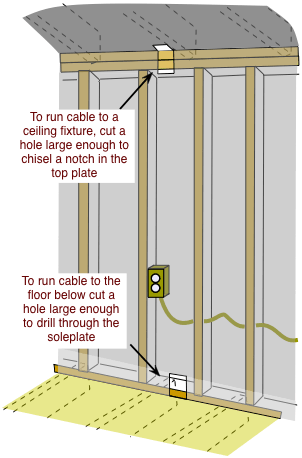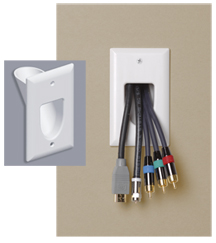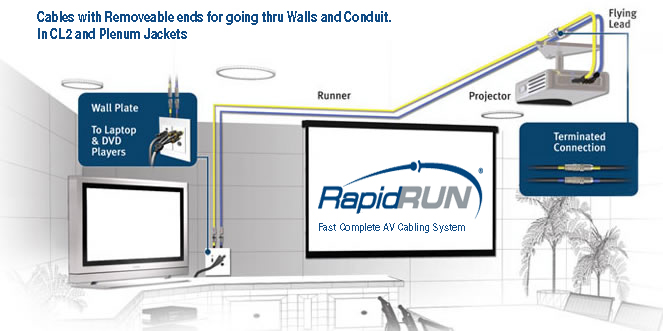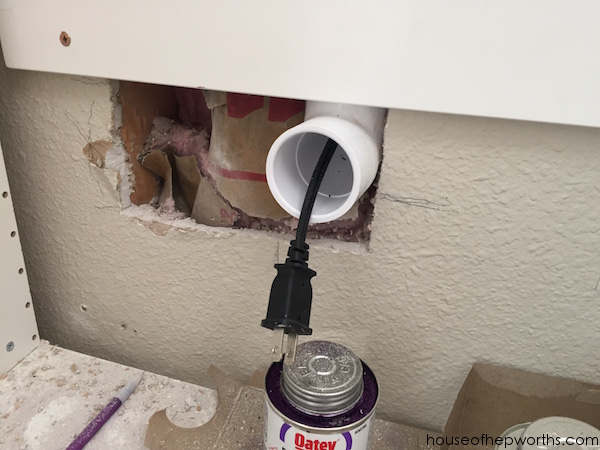Plug the included power supply cord into the inlet box and the nearby wall receptacle. Cut the bottom straight portion off from a metal coat hanger.

Running Cables In Hollow Walls
Run cables in wall. It is perfectly safe to run most cables through a wall. When working from an attic space it will be significantly easier to access a wall space on the floor below by. These cables will heat up more than most other cables. Connect your other cables as needed. You need more than the bare minimum of cable to span the distance. In wall speaker wire is identified in shorthand that indicates its gauge thickness and its number of strands or conductors as theyre known in the trade.
Place the 1 gang retro ring on the wall in between the studs in the spot youve chosen. How to run audio visual cables through walls step 1. Check the wall for any obstructions like studs or pipes using the stud finder. Of course you could by the device to snake the cables but why spend more money. I did have trouble running the cable to the bottom opening at first but i just simple used a piece of lace my wife had laying around and tied it to the cables and pulled them through. This is something you might want to do with an av specialist.
Sewell direct offers ghost wire thats a spool of 16 awg speaker wire about the width and thickness of duct tape. Purchase the cable and accessories. Place your tv back onto the wall and plug the tv power cord into the top receptacle box. If the wall above run perpendicular to the joists the cable will need to span several joists. Run cables in your walls. Turn the retro.
How to run wires in existing walls and floors todays homeowner need a new phone jack in your bedroom or installing speakers for your home theater system. 162 is 16 gauge wire with 2 conductors 144 is 14 gauge wire with 4 conductors the lower the gauge number the thicker the wire. Really the only cable you absolutely should not run through a wall is a standard power cable that plugs into an outlet. Also check the path the cable will take some homes may. Cut two holes place the unit in the wall and run the cable. This invisible wire solution is a non invasive and low cost alternative to cutting holes in the wall.
When working from a basement inspection of the area in contact with the foundation or sill will be required. The goal is to find a route from. While you could simply string the wires along the floor its best to snake the wires inside walls or under floors. It has a strong adhesive on one side so it can be easily run along walls floors and under carpets. When the wall above is parallel to the joists attach the cable to the sides of a joist with insulated cable staples driven no more than 4 12 feet apart. They can cause electrical fires if there is a cut or another issue with the cable or device.
/d-i-y--915365912-5be0d21346e0fb0026efb5c5.jpg)



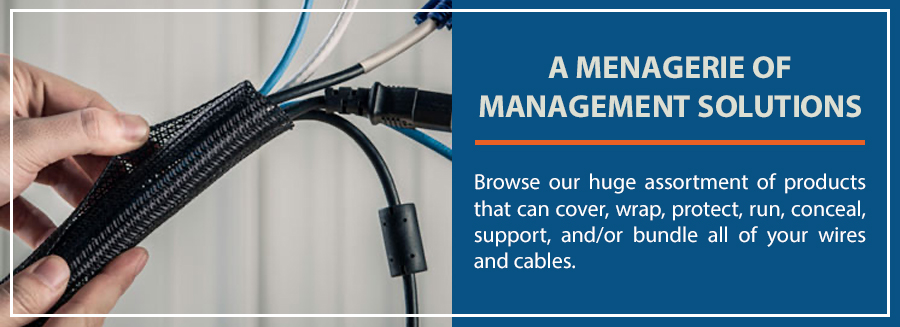
/Homeelectricalwiring-GettyImages-78315299-6ea53c0e22be47c0970010c96ac234b7.jpg)
